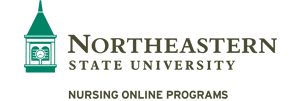The word “influencer” has taken on a new meaning over the past few years. Yet, to influence, by definition, fits so many scenarios: The capacity or power of persons or things to be a compelling force on or produce effects on the actions, behavior and opinions of others.
That is the exact theory of role models in the nursing profession. However, nurses must put theory into practice. The next generation of nurses has immense challenges ahead, and they need guidance to succeed. A Registered Nurse (RN) to Master of Science in Nursing (MSN) in Nursing Education program can give nursing professionals the streamlined, advanced training they need to prepare future generations of nurses.
What Challenges Does the Nursing Industry Face?
As healthcare looks towards the future, it’s not always hopeful. The ongoing nursing shortage remains highly problematic due to multiple factors:
- People are living longer, albeit not necessarily with healthier habits
- Legislation has expanded access to care
- Burnout among nurses has led to early retirement or individuals simply choosing to leave the field for a less stressful career
The resulting supply-demand imbalance means many nurses work long hours with few breaks, heightening the risk of mistakes. Also, technological and scientific advancements, while good in the long run, require a shorter learning curve among nurses and nursing students.
It’s no surprise that novice nurses — or even those who have been in the field for a few years — might feel intimidated.
The Role of the Role Model
Florence Nightingale said, “We do not teach what we preach, but what we are.” Joyce A. Johnson, Ph.D., RN-BC, expands upon this notion:
“So often staff learns most from what they see other staff do, not what they hear other staff say. A role model is a person looked to by others as an example to be imitated. They possess qualities that we would like to have, and we try to emulate them. They make us want to be better at what we do. They inspire us, motivate us, and encourage us to try a little harder to be a better nurse or educator. They help us realize our potential.”
In the nursing field, role models serve in both functional and conceptual capacities. Researchers Elaheh Mohammadi, Azim Mirzazadeh, Hooman Shahsavari and Amir Ali Sohrabpour illustrate this spectrum of role modeling as “dimensions” in their published study: “Clinical teachers’ perceptions of role modeling: a qualitative study.” They break the dimensions of influence into three categories:
1) Clinical Skills. Nursing practice requires clinical skills such as performing comprehensive health assessments, medication administration, evidenced-based practice and accurate record keeping.
2) Metacognitive Skills. Nurses also must possess key skills like problem-solving, clinical decision-making, situational management and critical thinking.
3) Professional Behavior. This element isn’t just limited to acting in a “professional” manner. Part of nursing practice also involves strong communication skills so nurses can effectively establish connections with their patients — ultimately influencing better patient outcomes.
Additional qualities of effective role models include passion, integrity, generosity, confidence and resilience. That last one is important, as Johnson notes, “Role models are not perfect, but they have worked through issues and been successful.”
These expectations might seem like big shoes to fill, but that’s where future role models’ education comes into play. Specifically, a Master of Science in Nursing (MSN) degree prepares nurses to rise to the challenge.
Why an MSN?
While a Bachelor of Science in Nursing (BSN) provides the foundation for nursing practice, the coursework in an MSN program takes it to the next level. The RN to MSN in Nursing Education program at Northeastern State University provides graduates with all those necessary skills mentioned above.
For example, the Advanced Research and Evidenced-Based Practice course illustrates the elements of quantitative and qualitative research processes. Role models have a responsibility to be culturally aware, which is the focus of the Cultural Perspectives course. They also need to be up to date on ethical, social and political issues impacting healthcare, covered in the Policy, Ethics, & Quality course.
Plus, nurse role models are attuned to what’s going on in the nursing field and how it might impact the future. The Issues & Trends in Professional Nursing course develops this skillset.
Keep on Keeping On
Nurses must constantly improve their skills and knowledge. Those who can model that aptitude to others are a special group — one that can make a significant difference in the future of nursing and healthcare as a whole.
Learn more about Northeastern State University’s online RN to MSN in Nursing Education program.


